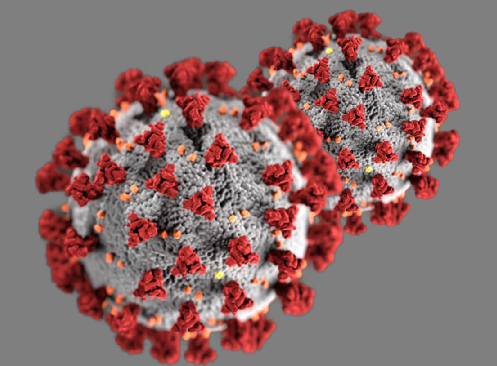N.B. Nair
New Delhi (ISJ): Widespread, global failures at multiple levels in the COVID-19 response led to millions of preventable deaths and reversed progress made towards the UN Sustainable Development Goals (SDGs) in many countries, according to a new Lancet COVID-19 Commission report.
The Commission analysed evidence from the first two years of the pandemic with new epidemiological and financial analyses to outline recommendations that will help hasten the end of the ongoing COVID-19 pandemic emergency, lessen the impact of future health threats, and achieve long-term sustainable development.
The report warned, achieving these goals hinges upon a strengthened multilateralism centred around a reformed and bolstered World Health Organisation (WHO), along with investments and refined planning for national pandemic preparedness and health system strengthening, with special attention to populations experiencing vulnerability. Crucial investments also include improved technology and knowledge transfers for health commodities and improved international health financing for resource limited countries and regions.
The Commission is the result of two years of work from 28 of the world’s leading experts in public policy, international governance, epidemiology, vaccinology, economics, international finance, sustainability, and mental health, and consultations with over 100 other contributors to 11 global task forces.
"The staggering human toll of the first two years of the COVID-19 pandemic is a profound tragedy and a massive societal failure at multiple levels”, says Professor Jeffrey Sachs, Chair of the Commission, University Professor at Columbia University (USA), and President of the Sustainable Development Solutions Network. “We must face hard truths—too many governments have failed to adhere to basic norms of institutional rationality and transparency; too many people have protested basic public health precautions, often influenced by misinformation; and too many nations have failed to promote global collaboration to control the pandemic.”
“Now is the time to take collective action that promotes public health and sustainable development to bring an end to the pandemic, addresses global health inequities, protects the world against future pandemics, identifies the origins of this pandemic, and builds resilience for communities around the world. We have the scientific capabilities and economic resources to do this, but a resilient and sustainable recovery depends on strengthened multilateral cooperation, financing, biosafety, and international solidarity with the most vulnerable countries and people,” he added.
Failures of global cooperation
The COVID-19 response has shown several aspects of international cooperation at its best: public-private partnerships to develop multiple vaccines in record time; actions of high-income countries to financially support households and businesses; and emergency financing from the International Monetary Fund (IMF) and World Bank.
But the events of the past two years have also exposed multiple failures of global cooperation. Costly delays by WHO to declare a “public health emergency of international concern” and to recognise the airborne transmission of SARS-CoV-2 coincided with national governments’ failure to cooperate and coordinate on travel protocols, testing strategies, commodity supply chains, data reporting systems, and other vital international policies to suppress the pandemic. The lack of cooperation among governments for the financing and distribution of key health commodities—including vaccines, personal protective equipment, and resources for vaccine development and production in low-income countries—has come at dire costs.
The Commission found, the Western Pacific region, including East Asia and Oceania, primed by previous experience with the SARS epidemic of 2002, adopted relatively successful suppression strategies resulting in cumulative deaths per million around 300, much lower than in other parts of the world. Disjointed public health systems and poor-quality public policy response to COVID-19 in Europe and the Americas resulted in cumulative deaths around 4,000 deaths per million, the highest of all WHO regions.
“Over a year and a half since the first COVID-19 vaccine was administered, global vaccine equity has not been achieved. In high-income countries, three in four people have been fully vaccinated, but in low-income countries, only one in seven,” says Commission co-author, Maria Fernanda Espinosa, former President of the UN General Assembly and former Minister of Foreign Affairs and Defence, Ecuador.
Isolated and unequal national responses
The report is also critical of national responses to COVID-19, which often featured inconsistent public health advice and poor implementation of public health and social measures, such as wearing face masks and vaccination. Many public policies did not properly address the profoundly inequitable impacts of the pandemic on vulnerable communities, including women, children, and workers in low- and middle-income countries. These inequities were exacerbated by extensive misinformation campaigns on social media, low social trust, and a failure to draw on the behavioural and social sciences to encourage behaviour change and counter the significant public opposition to routine public health measures seen in many countries.
Ending pandemic emergency
The Commission suggested two clear timelines for pandemic response and preparedness: immediate actions in the short-term to end the COVID-19 emergency, and longer-term policy recommendations for a new era of multilateral cooperation to achieve long-term sustainable development.
The Commission proposed all countries adopt a vaccination-plus strategy, combining widespread vaccination with appropriate public health precautions and financial measures to finally control the pandemic.
The Commission recommended strengthening of national health systems and adoption of national pandemic preparedness plans to prepare future health threats. It also wanted actions to improve coordinated surveillance and monitoring for new variants, protect groups experiencing vulnerability, and create safer school and workplace environments by investing in ventilation and filtration.
Source: The Lancet
Image: Representational


